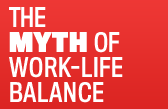What My Son's Disabilities Taught Me About 'Having It All'
Because of her child's problems, the author will never have a tidy, peaceful life. But none of this keeps her from being happy -- as long as she asks herself the right questions.

As someone in her 40s, unequivocally in middle age, I find myself and my friends in that stage of life that seems to auger constant assessment -- am I happy? Am I doing the right thing with my life?
Evidenced by the number of times Anne-Marie Slaughter's Atlantic piece "Why Women Still Can't Have It All" was posted on Facebook, it served as a cri de coeur of the collective unconscious of those of us swimming in the Gen X/Baby Boomer estuary, last stop before becoming truly elderly. (It's apparently also the most-read article in the magazine's 155-year history.) Slaughter rightly questions why having a family complicates the career ladder for women in a way that it does not for men. But the hidden heart of the article, I believe, is its hinting at that unspoken yearning for that perfect life that has been promised to us by ... someone? Ads? TV? Ms. Magazine? Those ATHLETA catalogs?
Let me compare and contrast that with a typical incident that happened just last week in my own 40-something working mother life. My husband and I were sitting in the office of a neuropsychologist who had just run an assessment on our 12-year-old son who has a variety of disabilities and medical problems.
While our friends worry about middle schools, we bring our son to the ER to get stitches after he puts his head through a window.
"You know cognitively, he's functioning at the bottom 1 percent of children his age," he said.
I nodded.
"That means 99 percent of children are doing better than he is."
I nodded again. (Yes, I can do the math.)
He waited, seemingly perplexed. "Having seen what I saw, and of course you have to be with your son all the time -- I have to ask you, how do you have the patience?"
I looked at him. He's my son. It was so obvious, I did not say it.
"I mean, really. How do you do it?" He looked to my husband, who gave him the same look. He tried a different tack: "Well, with all this stress, how are you two doing?"
"Fine," we said, and meant it. He handed us the thick report, still shaking his head.
This is, sadly, a very typical exchange, not just with the experts in our lives, but even close friends: How do we stand our hellish life with a child who functions at 1 percent and starts to bite and hit when he is in situations he doesn't understand -- often, multiple times a day? Once, watching our son having a hard time, a friend even blurted, "I'm so glad this didn't happen to us!"
While our friends worry about the quality of middle schools, our parental duties include bringing our son to the ER to get stitches after he puts his head through a window, then arranging for a window replacement and for a special treatment for all the glass in our house so it won't shatter -- at a pretty penny. Other friends declare, "I couldn't do what you do." If I am to conform to their expectations, I'm not sure what I am supposed to do: Beat my son? Kill myself? (Sadly, parents with kids like my son have done exactly that.)
Maybe it's my Buddhist outlook, but I'm not consumed with worry and frenzy and despair like I'm "supposed" to be. I don't enjoy that my 12-year-old son is still in diapers and sometimes purposely makes a mess in the bathroom. Or that he dumped his Thanksgiving dinner on my sister-in-law's pregnant belly. Or that he screams in the parking lot of Whole Foods until people call the cops on us. On the other hand, he is my son, and he is what I have. And he has a nice smile.
When I look at friends and acquaintances, many with perfectly beautiful children and wonderful lives, and see how desperately unhappy or stressed they are about balancing work and family, I think to myself that the solution to many problems is deceptively obvious. We are chasing the wrong things, asking ourselves the wrong questions. It is not, "Can we have it all?" -- with "all" being some kind of undefined marker that shall forever be moved upwards out of reach just a little bit with each new blessing. We should ask instead, "Do we have enough?"
The New York Times' travel section had a piece on Providence, Rhode Island, where we live. It mentioned that our city is extremely affordable, but filled with many fun and interesting things to do, such as going to Venda Ravioli on Federal Hill (Providence's version of Little Italy) and procuring amazing hand-made ravioli filled with anything from homemade ricotta cheese to lobster. It's something our friends do all the time: visit the quaint neighborhood, walk around with an Italian ice, and pick up dinner. Our son has digestive problems and can't eat wheat or dairy, and much of his food has to be soaked and fermented beforehand. In addition, he has a hard time enduring crowds in small spaces. Ergo, despite our 15 years here, we have never been to Venda Ravioli, and probably never will.
Do I sit at home stewing over being denied a Venda Ravioli night? Not any more than I sit stewing that I'll probably never get to experience space tourism. And it's not that I go through my life like the implacable Buddha, always in the present, dealing with what needs to be dealt with in a state of serenity and calm. My life -- obviously -- has many frustrations and disappointments (our son poured out his vegetable juice on our wooden table this morning). But one thing I've learned is that the minute I start fixating on what I don't have -- time, money, a child I can send to camp for the summer, central air conditioning -- I just feel that much hotter and put-upon, and those bad feelings seem to attract extra obstructions to my day.
Another instructive moment: while packing for our upcoming move to New York City, we are in the process showing our house for rental (again: "How can you handle the stress?"), and the ramping-up of our culture's "have-it-all" standards are exemplified in our 1969 GE Hotpoint stove. My husband and I make three meals a day from scratch on that trusty workhorse. A decade ago, we easily rented our house out when we went on sabbatical.
Now, despite beautifully redone bathrooms and yard, and EPA-approved lead abatement for families with children, our realtor tells us we have a problem: the stove. It has to go, he tells us. Not because it doesn't work -- it still works great -- but because people "expect" certain things. My husband and I were aghast as we pondered a major stove upgrade, but then we recalled acquaintances with gorgeous Viking stoves that sit unbesmirched by actual cooking, almost as if the stainless professional-quality stove is more prop than appliance, a requirement for kitchen happiness in the modern world. To look at our house, then, is to see the glaring absence of a Viking in our kitchen.
When people ask, "How are you not exploding with stress with everything on your plate?", I know they only mean it in the best, most compassionate way. And for those who have beautiful healthy children and gleaming new stoves, I do not discount their heartaches and worries and crises. But what bothers me is the implicit expectation: that people are waiting for our inevitable breakdown, a breast-beating howl against fate that is sure to come once we realize we'll truly never "have it all" -- because of our imperfect son.
For all the people who are puzzled by my seeming happiness, I'll be glad to let them know my "secret." I'm not in denial, I'm not on antidepressants, and I don't live in a fantasy world. I have a wonderful husband and I am pursuing a career I've dreamed of since I was nine years old. I have a beautiful son, friends, and a working stove. I am not paraplegic. I have parents who, through luck and fate, had me here in the United States, and not in North Korea. I live in a time where my awful vision can be corrected with glasses. I am a college graduate. I am never hungry unless I choose to be.
Do I have enough? Resoundingly: yes. And I ask you to take a moment: I suspect you might, too.
